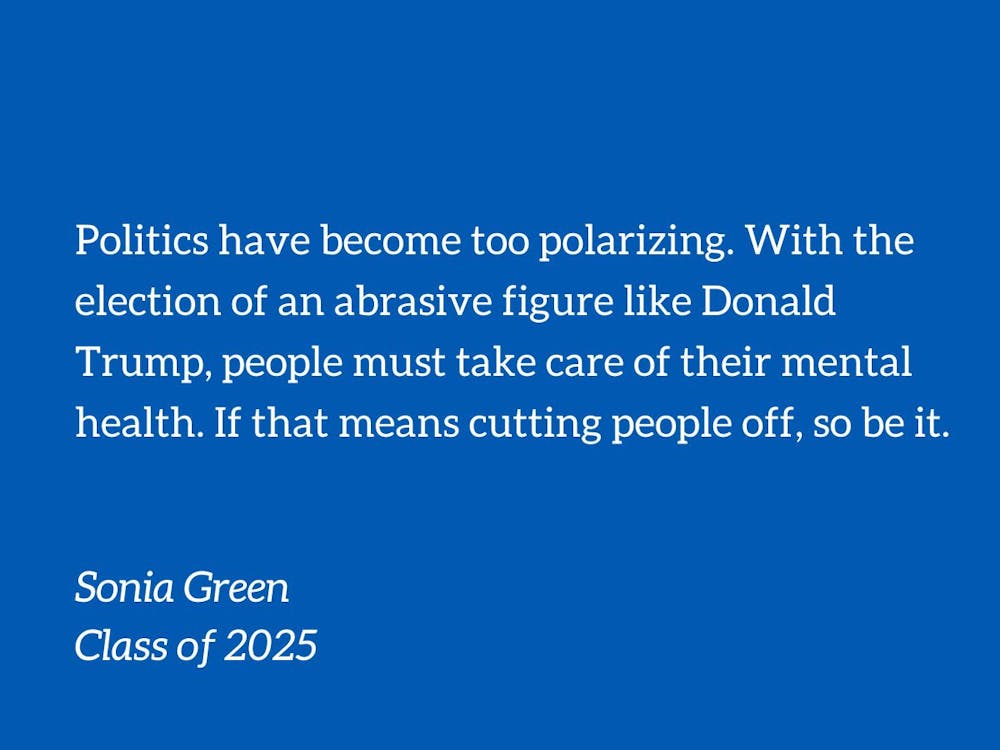When I woke up on November 6th, I immediately checked my phone. I had a strong suspicion that America knew who it had chosen as president, and I wanted to find out. After getting confirmation that I was right, a small part of me became happy. My prediction was correct. However, I felt an overwhelming sense of disappointment and concern for the community. At the Mary Lou Williams Black Cultural Center (also known as Lou), we have talked many times about what the new presidency of Donald Trump means for the black community. We were all very worried, stressed and anxious. Many of my colleagues have mass unfollowed on social media and removed all connections to Trump supporters from their accounts. I understand too. For mental health reasons, I don’t think there is anything wrong with excluding Trump supporters from your life.
As a North Carolina native, I wasn’t surprised to see Donald Trump win the state. I’ve seen Trump supporters around Durham, at the State Fair in Raleigh, and even at Duke University football games. I was amazed to see him wipe out every swing situation. From Georgia to Pennsylvania to Michigan, Trump supporters represented nearly a majority of voters.
Walking around Duke University’s campus after such a tense election was a nerve-wracking experience. I don’t mind the idea of having allies with different political views, but this election symbolized more than just political polarization. It represented women’s health care, public education, immigration, democracy, and, like Barack Obama’s 2008 campaign, racial considerations in America. It is very difficult to tell at a glance who believes what. I don’t mean to alienate students at Duke University who voted for Trump, but as a black student, it’s scary to know that there are students here who agree with his beliefs.
This election symbolizes so many things. In particular, it’s scary to know that there are people who support his promise to eliminate the Department of Education, which provides additional funding to high-poverty K-12 schools. This will directly impact millions of students for whom their local public school is their only option. Why does Florida already teach students that some black people benefited from slavery because it taught them useful skills? Do we need to be told what to learn? President Trump’s plan for mass deportation is also a concern. Latinos, both documented and undocumented immigrants, are an essential part of our society, and mass deportation would have devastating consequences. This policy will cost Americans at least $315 billion. If someone cannot support these policies, they have every right to remove those who do from their lives.
In the name of tolerance, equality, and bipartisanship, I’ve seen many Trump supporters complain on social media that it’s unfair to judge people based on their political beliefs. But I don’t think that’s what’s happening here. People do not isolate themselves from friends, family, and loved ones because of their affiliation with another political party. We have come to associate this election with morality and ethics, which encourages a rupture in these relationships. A negative vote involves a moral judgment. A vote for Donald Trump is now viewed as a vote against many of the things we hold dear, including diversity, economic opportunity, and reproductive rights.
I’m not sure I’m the best person to give much advice to students who feel marginalized because they voted for Trump. All I can do is encourage people to open up to respectful dialogue with those who have been hurt by their actions, while understanding that many people may not want to talk to them. We live in tough times, where some people feel “othered” based on their political views, and others are genuinely worried about their future.
I hope that the next four years will be a peaceful time where we can transcend political lines and come together as a country, but I’m not very optimistic. Politics has become too polarized. With the election of an aggressive figure like Donald Trump, people have to take care of their mental health. If that means cutting people off, so be it.
Sonia Green is a senior at Trinity. Her works are usually performed every other Thursday.
Get The Chronicle delivered straight to your inbox
Sign up for our weekly newsletter. You can cancel at any time.



